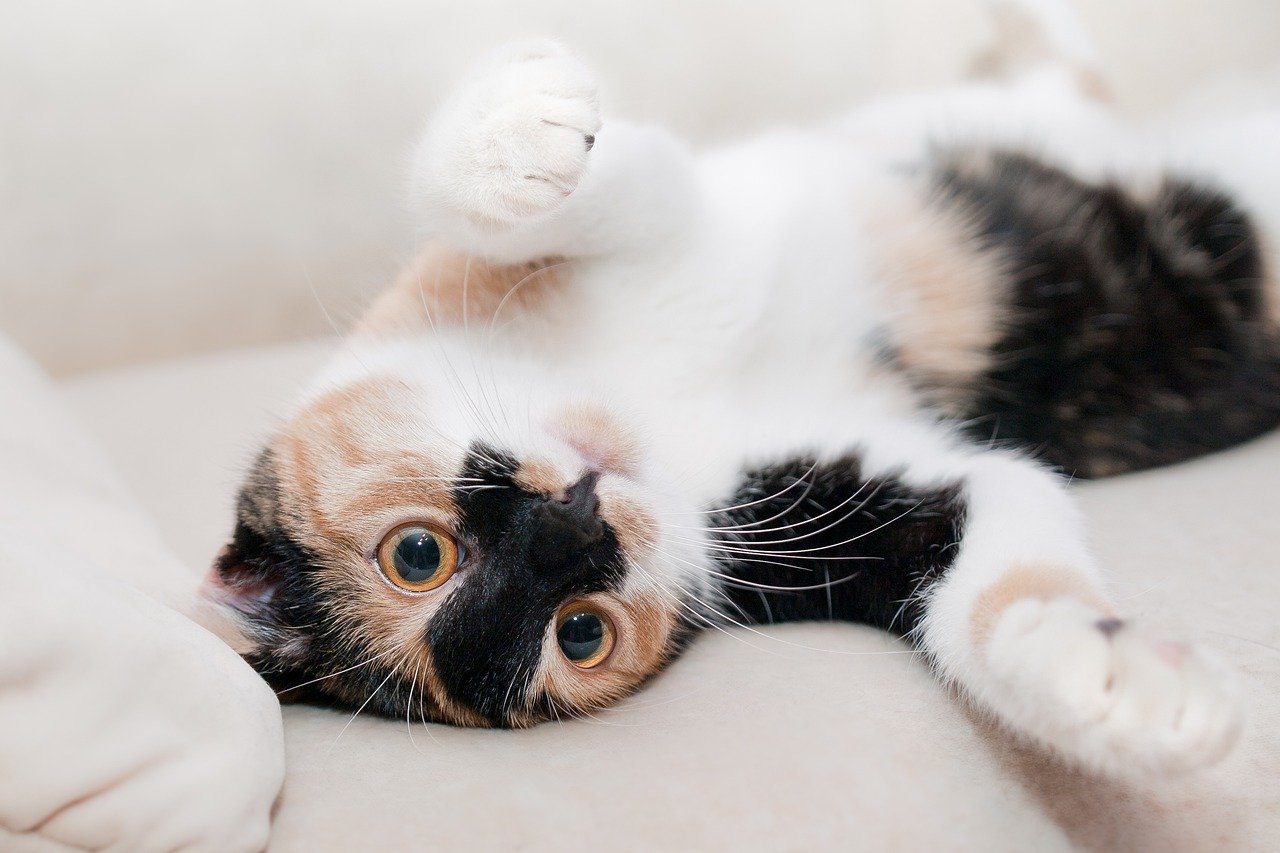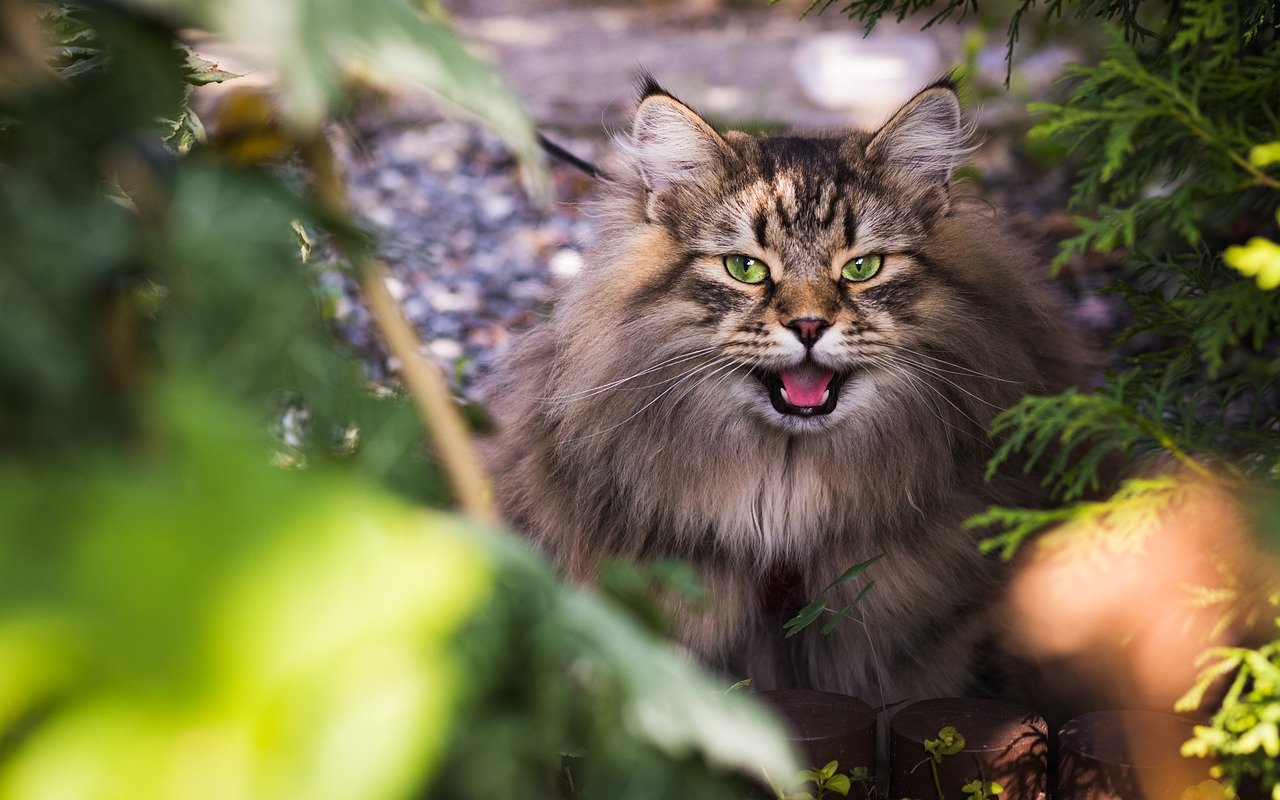Cats, those enigmatic creatures we share our homes with, have a unique way of communicating that is often wrapped in mystery and misunderstanding. If you’ve ever noticed that your cat seems to chatter more when you’re around, you’re not alone. This curious behavior has puzzled cat owners for generations. Cats are known for their independence, so why do they become vocal when you are in the room? Let’s unravel this feline mystery together.
Your Cat Sees You as Part of Its Family
Cats are not as solitary as they might seem. In fact, they often form strong bonds with their human companions, viewing them as part of their family. This bond can lead to increased communication, similar to how they would with their mothers or siblings. In a multi-pet household, you might notice your cat being more vocal with you than with other animals. They have chosen you as their favored family member, and in doing so, they express themselves more openly. It’s like a secret language shared between close friends, a sign of trust and affection.
They Are Trying to Get Your Attention
Just like a child calling out to a parent, your cat may be meowing to capture your attention. Whether they want food, playtime, or simply some affection, vocalizing is their way of making sure you notice them. Each meow can mean something different, and over time, you’ll start to recognize what each sound signifies. Imagine a gentle tap on the shoulder, a way to say, “Hey, I’m here, and I need something from you.” This form of communication builds a deeper connection between you and your feline friend.
They Feel Safe and Secure Around You
Cats are creatures of habit and comfort. When they feel secure, they are more likely to express themselves vocally. Your presence provides them with a sense of safety, leading to an increased willingness to communicate. In a world full of unknowns, you are their constant, their safe harbor in a storm. This trust is not easily earned, making your cat’s vocalization a badge of honor, a testament to the bond you share.
They Are Mirroring Your Behavior

Cats are observant creatures, often mimicking their owners’ behaviors. If you talk to your cat regularly, they might be responding in kind. This mirroring can foster a stronger bond and lead to more vocalization. It’s like an unspoken game of “copycat,” where your interactions become a dialogue, a dance of words and sounds that only the two of you understand. Over time, this back-and-forth communication becomes a cherished routine.
The Influence of Breed and Personality
Certain cat breeds are naturally more vocal than others. Siamese cats, for example, are known for their chatty nature. However, individual personality also plays a significant role. Your cat’s unique character and breed traits can influence how much they talk around you. It’s akin to meeting a chatty friend at a party; some personalities just love to engage in conversation. Understanding your cat’s breed and personality can help you appreciate their vocal tendencies even more.
They Are Responding to Environmental Changes

Cats are sensitive to changes in their environment, and these changes can trigger increased vocalization. Whether it’s a new piece of furniture or a change in routine, your cat may talk more to express their feelings. Imagine walking into a room that’s been rearranged without your knowledge; you might have a few words to say about it too! Your cat’s vocalization is their way of processing these changes and seeking reassurance from you.
Age and Health Factors
As cats age, they may become more vocal due to various health reasons. Conditions such as hyperthyroidism or cognitive dysfunction can lead to increased meowing. It’s essential to monitor any changes in your cat’s vocalization and consult with a vet if necessary. Think of it as an elderly relative who starts to chat more; it might be a sign of something deeper that needs attention. Being attuned to these changes ensures your cat’s well-being.
They Are Expressing Their Emotions
Cats have a range of emotions, from joy to frustration, and they express these feelings through vocalization. Whether they’re happy to see you or annoyed by something, they’ll let you know. It’s like reading a book full of emotions, each meow a chapter in their story. By paying attention to these vocal cues, you can better understand your cat’s emotional state and respond accordingly, strengthening your bond even further.
The Role of Reinforcement
Sometimes, your response to your cat’s meowing can encourage more vocalization. If you consistently react positively to their chatter, they may continue to talk to you more. It’s a bit like training a pet to perform a trick, where the reward (your attention) reinforces the behavior. Over time, this reinforcement becomes a part of your daily interaction, a delightful ritual that both you and your cat enjoy.
Understanding the Language of Meows
Each cat has its unique way of communicating, and understanding these nuances can enhance your relationship. From the pitch to the length of the meow, each sound has its meaning. It’s like learning a new language, where each word carries a world of meaning. By tuning into these vocal cues, you create a dialogue that transcends words, a connection that goes beyond simple communication.
In conclusion, your cat’s vocalization is a multifaceted behavior rooted in their instincts, personality, and the bond they share with you. By understanding why your cat talks more around you than others, you can deepen your connection and enjoy a richer, more fulfilling relationship with your feline companion.

Growing up traveling and experiencing new cultures and wonders, I have had a passion for nature, adventuring, photography, and videography. I am currently working towards a BSc in Biodiversity and Ecology at Stellenbosch University, and I hope to specialise in Marine Sciences one day.
Please send any feedback to Feedback@animalsaroundtheglobe.com






